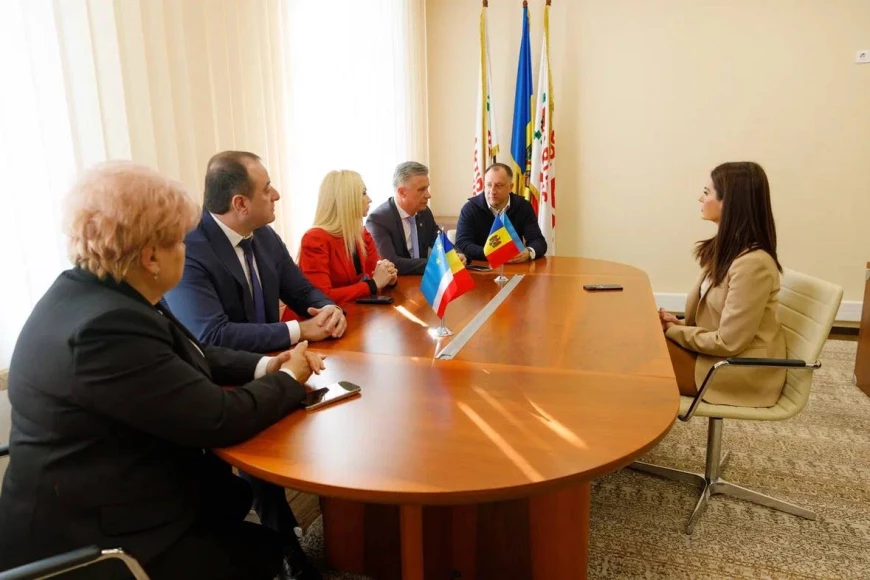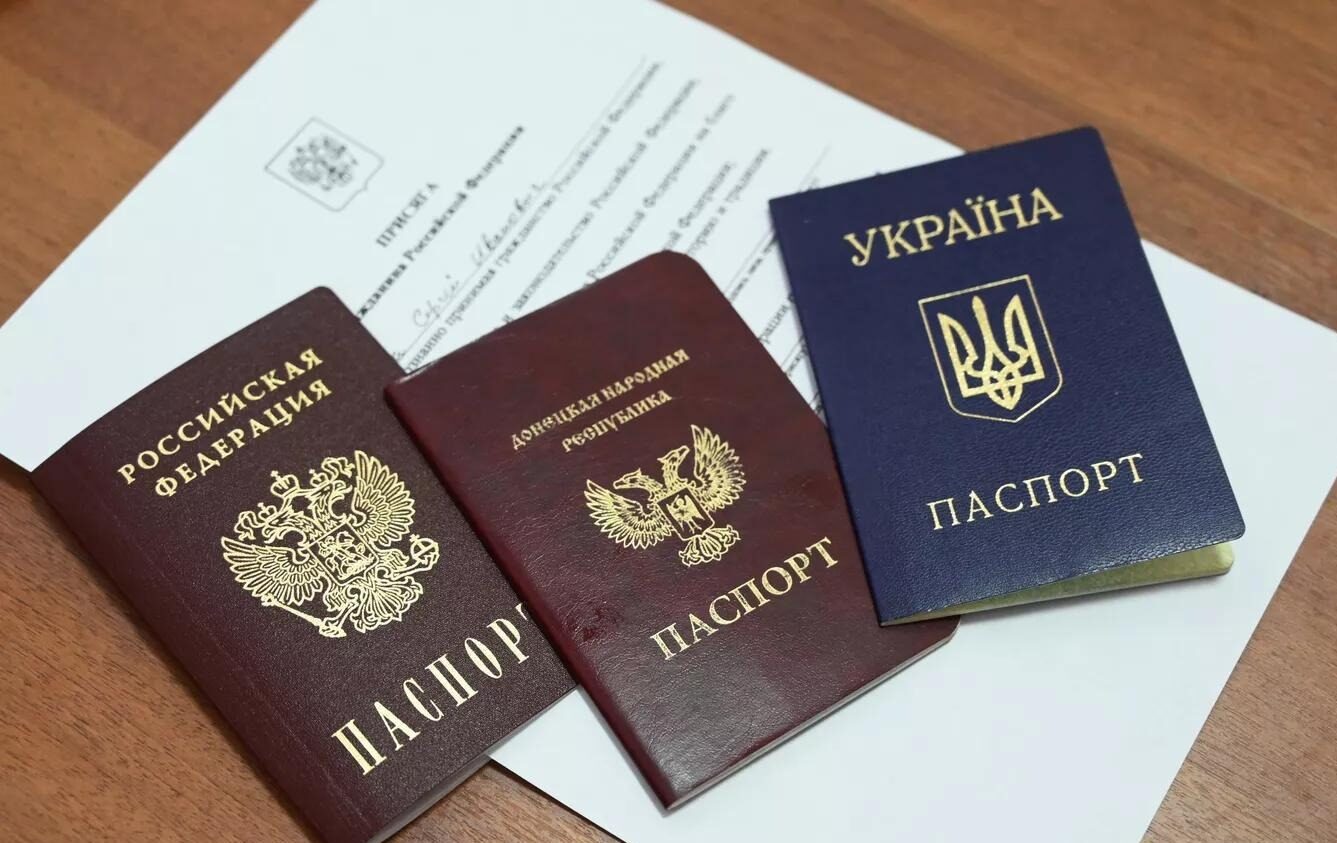
Gagauzia Plans to Declare Independence If Moldova Pursues Unity With Romania
Gagauzia Plans to Declare Independence If Moldova Pursues Unity With Romania
Executive Summary:
- Gagauzia, a small Christian Turkic and pro-Russian autonomous region, says it will exercise its right to secede and form an independent state if Moldova becomes a part of Romania.
- Chisinau’s pursuit of EU membership and its increasing pressure on Gagauzia, Moscow’s desire to block Moldova, and Bucharest’s declarations about absorbing Moldova have all contributed to Gagauzia’s radicalization.
- The conflict remains a war of words, but that could quickly change. If Romania becomes more involved, it could force NATO involvement.
Gagauzia, a small (140,000-strong) Christian Turkic and pro-Russian autonomous region in Moldova, is on its way to becoming a new hotspot in Eastern Europe that could trigger a direct confrontation between Russia and the North Atlantic Treaty Organization (NATO). A month ago, Yevgenia Gutsul, Gagauzia’s bashkan (head), met with Russian President Vladimir Putin in Sochi, where the Kremlin leader encouraged her to continue her opposition to Chisinau and its turn to the West (see EDM, August 3, 2023, March 20, March 21). Last week, Romanian Prime Minister Ion-Marcel Ciolacu declared that he favors Moldova becoming a part of Romania and joining Western institutions. Gutsul responded that if Chisinau and Bucharest do move in that direction, her republic would declare independence (Kommersant, April 4; DCNews.ro; T.me/evgheniagutul, April 5; Gagauzinfo.md, April 8). Taking such a step is a right that Chisinau itself recognized in 1994 when Gagauzia gave up its earlier drive for statehood and accepted autonomy within Moldova. Both Chisinau and Komrat (Gagauzia’s capital) agreed that the region could seek independence if Moldova joined Romania, a country with a common language and a great deal of history and culture. Up to now, both Komrat and Moscow have downplayed that possibility, preferring instead to have Gagauzia’s autonomy boosted and thus tie Moldova to Russia.
Now, the situation appears to have changed in a potentially explosive direction. While Gutsul’s threat has received relatively little attention in the West, Moscow media has devoted enormous attention to it, indicating that Russian officials may be behind her response. The Kremlin fears it is losing ground in Moldova and can no longer count on the breakaway republic of Transnistria as its primary tool to limit Chisinau’s actions. Some Moscow commentators are even suggesting that Russia could intervene militarily to support the Gagauz. The Russian government is seemingly laying the groundwork for such actions by suggesting that Moscow would act only in response to a Romanian and NATO threat—the same logic it employed in the case of its invasion of Ukraine. (On Russian attention to Gutsul’s words and signs that the Kremlin is actively considering a response, see Theins.ru, March 27; Iz.ru, April 5; Politnavigator.net, April 6; 360.tv, April 8; Stoletie.ru, April 9.)
The possibility that Chisinau might pursue a union with Romania is only one of the factors affecting Gagauz attitudes. Relations between Chisinau and Komrat have long been difficult, even after the 1994 accord. (For this history and Moscow’s prominent and increasing role in stirring the pot, see EDM, April 28, 2022, March 21, 2023, May 9, 2023.) For most of the past 30 years, Chisinau has sought to restrict the powers and privileges of Gagauzia’s autonomy. Its approach, however, has become far tougher since Gutsul became bashkan, adopting an increasingly independent and pro-Russian line.
The central Moldovan government has not only acted against Gutsul but has also become increasingly contemptuous of Gagauzia’s existence. As the current bashkan is allied with Ilan Shor, a Moldovan oligarch who fled the country in 2019 after being convicted of corruption by a Moldovan court, Chisinau has refused to give Gutsul the seat in Moldovan political bodies that her predecessors enjoyed. Moldovan deputies have also adopted legislation that has reduced Gagauzia’s freedom of action, and Moldovan officials have repeatedly met with local officials in Gagauzia without the presence or sanction of the government in Komrat (Tuk.md, September 17, 2023; Theins.ru, March 27; Politnavigator.net, April 6). Most recently, a former Moldovan defense minister openly said that “Gagauzia does not exist; there are only the Komrat, Vulkpesht, and Chadyr-Lung districts.” This is an attitude that others in the Moldovan capital likely share, given that they already have Romanian passports. Such sentiments threaten to further enflame the situation (Gagauz.info, April 9).
Despite all this, the situation may not explode for several reasons. Gagauzia would find it difficult to pursue independence, and Moscow would find it even more difficult to intervene militarily. On the one hand, Gagauzia consists of several non-contiguous districts. Thus, it would be hard-pressed to unite them. Most districts are surrounded by Moldovan areas, and the republic’s only external border is with Ukraine, which Moscow could exploit if it were able to occupy Ukraine’s far west. On the other hand, while such a beachhead might be useful to the Kremlin for its war, any Russian move in support of Gagauzia would have to pass through or over the territory of other countries, including Moldova, which would certainly spark a response from Bucharest. As Romania is a member of NATO, a fact that it highlighted with its recent military exercises and open support for absorbing Moldova, any Russian intervention in Gagauzia would put Moscow on course to a direct conflict with the Western alliance.
As a result, Chisinau, Bucharest, and Moscow may refrain from taking actions that could foment a broader conflict. Nevertheless, the actions of all three, at present, are raising the temperature to the point that the Kremlin might decide that “coming to the defense of Gagauzia” would be its best option, especially if Putin hopes to expand his war against Ukraine to an open conflict with NATO. If that proves to be the case, then Gagauzia, Moldova, and Romania, rather than Poland, the Baltic states, and Scandinavia, may very well become the places where expanded attention of Western defense planners is required in the immediate term.


